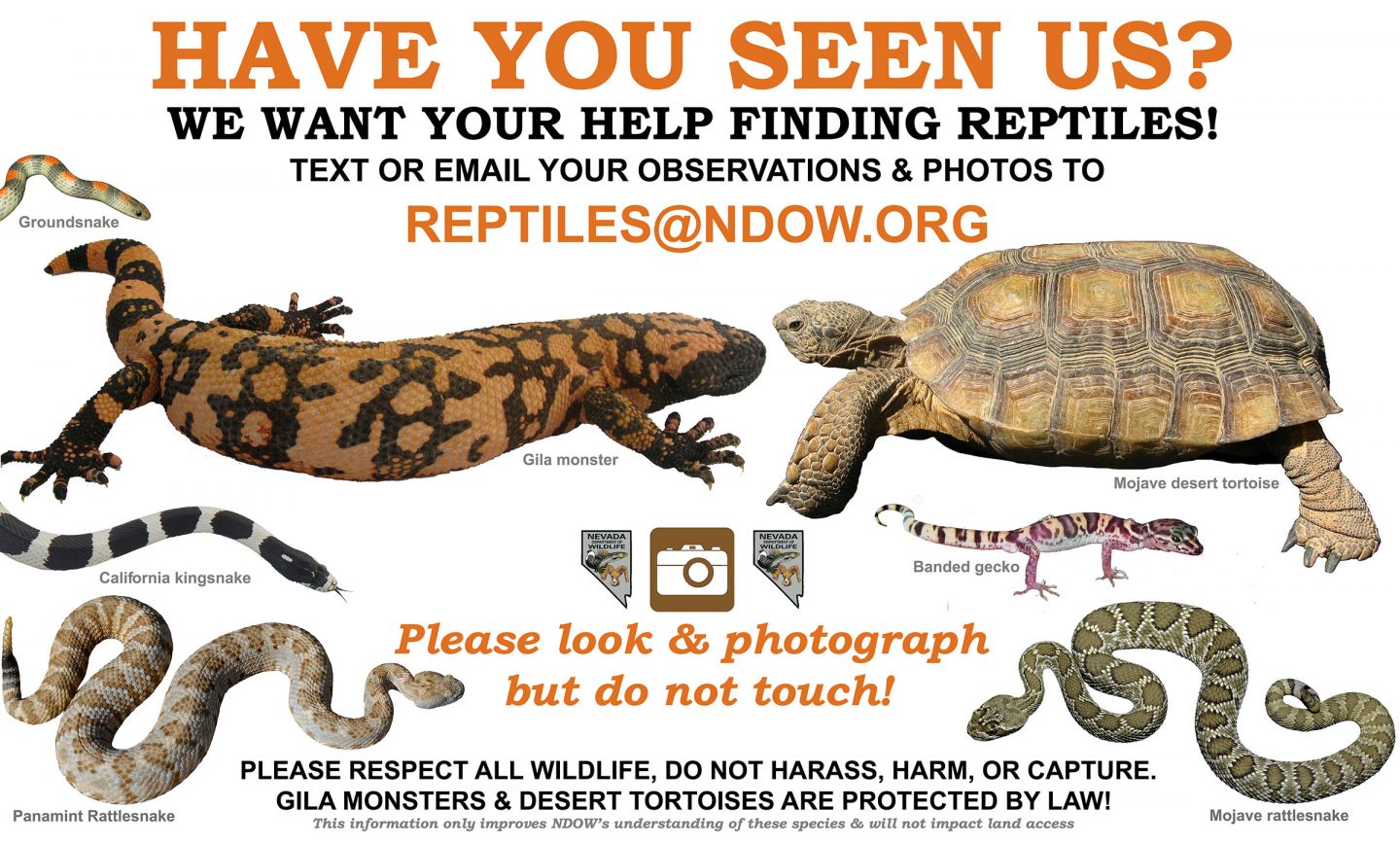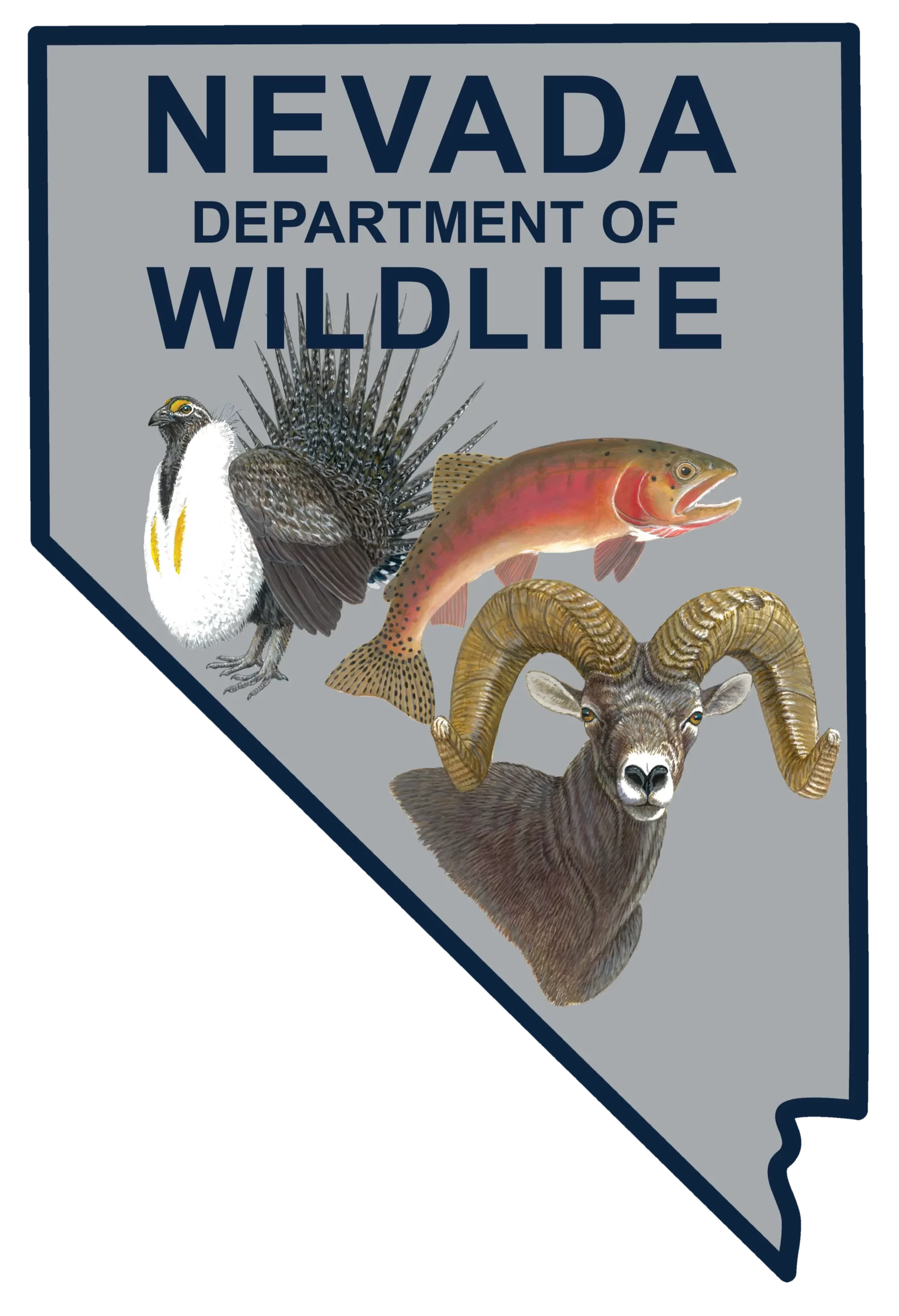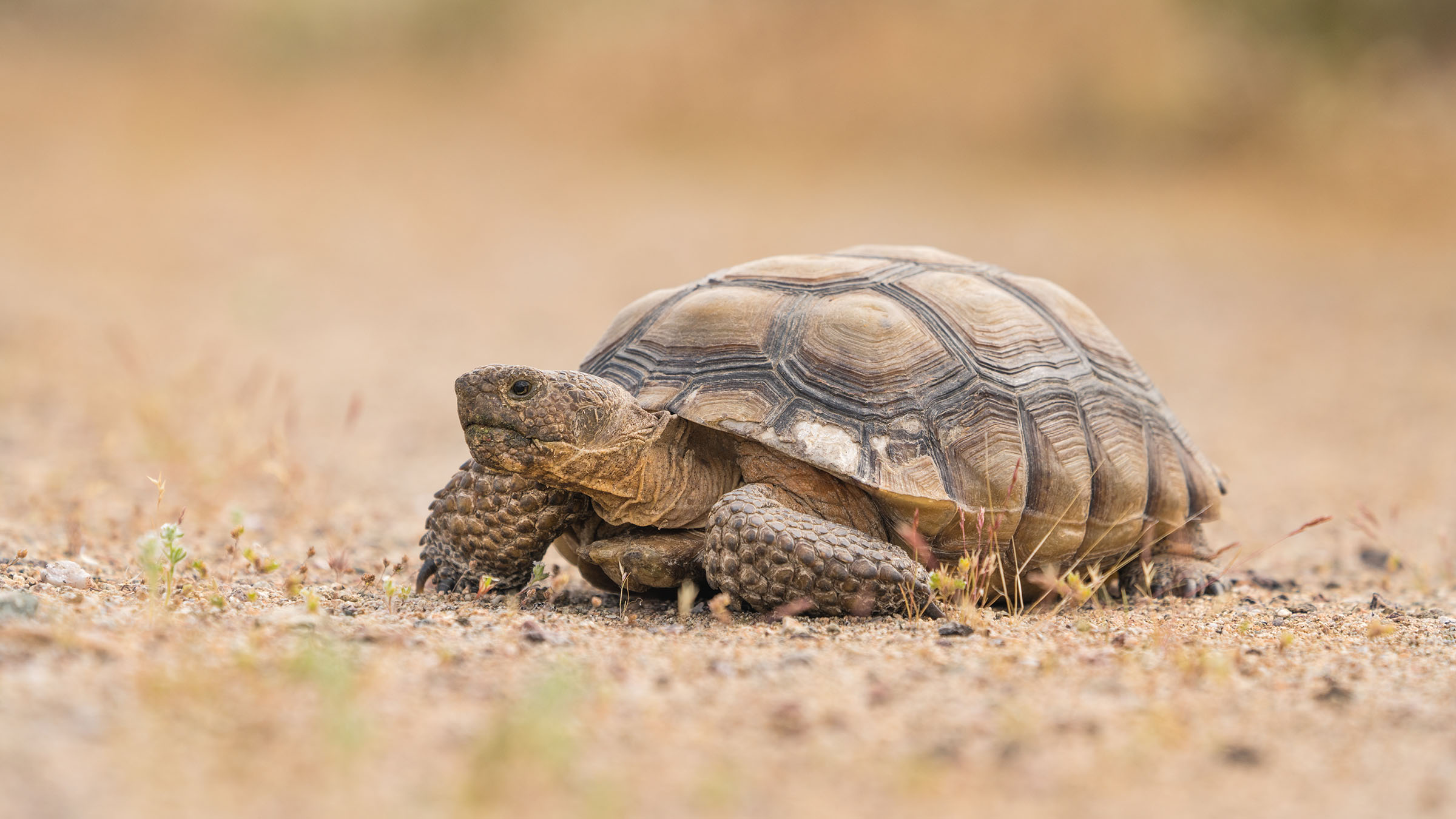Desert tortoises are Nevada’s state reptile. Finding one in your backyard can be quite exciting, however keeping our tortoises safe needs to be our number one priority.
I found a desert tortoise, what should I do?
If a wild desert tortoise is observed in the wild, leave it alone. If it’s on a road, allow it to cross on its own unless there’s heavy traffic, in which case you could carefully move it off the road in the direction it was heading; it’s helpful to place it in the shade under a shrub, then leave it alone. Please note, disturbing a desert tortoise by picking it up may cause it to void its bladder, causing invaluable water loss to an individual trying to survive in the dry and harsh Mojave Desert. It is illegal to collect a wild desert tortoise.
If a desert tortoise is observed in an urban area, it is possible that it is someone’s lost pet. This is especially likely if the tortoise does not hide in its shell when approached, or actively approaches you in search of food. Place flyers close to where you found it to let your neighbors know you found a tortoise. The Nextdoor website is a great resource to utilize to pass along the message to even more neighbors. The Tortoise Group has a Lost and Found page that can be utilized to advertise the found tortoise. The Tortoise Group’s Facebook page and other online lost and found animal sites are great for this as well. Veterinary clinics will perform free microchip scans. If no one claims it, you can either keep the desert tortoise and register it on the Tortoise Group website to make you the legal custodian, or you can find someone else who is willing to take the tortoise and legally register it.
In Southern Nevada, contact the Tortoise Group at 702-739-7113.
In Northern Nevada, contact the Reno Tur-Toise Club for adoption and care at 775-972-8532.
Where are desert tortoises found?
Desert tortoises are native to southern Nevada and can be found in the Mojave desert. They are not native to northern Nevada so, if you find a desert tortoise in northern Nevada it is likely an escaped pet. If this is the case, please reach out to the above groups or your animal control to make sure it gets back to its rightful owner!
I no longer want my pet desert tortoise. What should I do?
It is illegal to release pet desert tortoises into the wild. Pet tortoises pose a significant risk of disease transmission to wild tortoises. Information on re-homing your desert tortoise can be found here: Re-home Your Tortoise (tortoisegroup.org).
What is the status of the desert tortoise?
The desert tortoise is federally and state listed as threatened. While it is illegal to possess a wild desert tortoise without federal and state authorization, it is allowed to have pre-act desert tortoises (in captivity before August 1990) and their progeny in captivity as pets (NAC 503.093). Desert tortoises are not harmful to humans or their pets and are not considered a public safety threat.
What if I don’t want desert tortoises to come onto my property?
To limit the number of tortoises coming onto your property, you can work to exclude them! Desert tortoises are easily excluded from areas utilizing this fence design Desert Tortoise Exclusion Fence Design.


